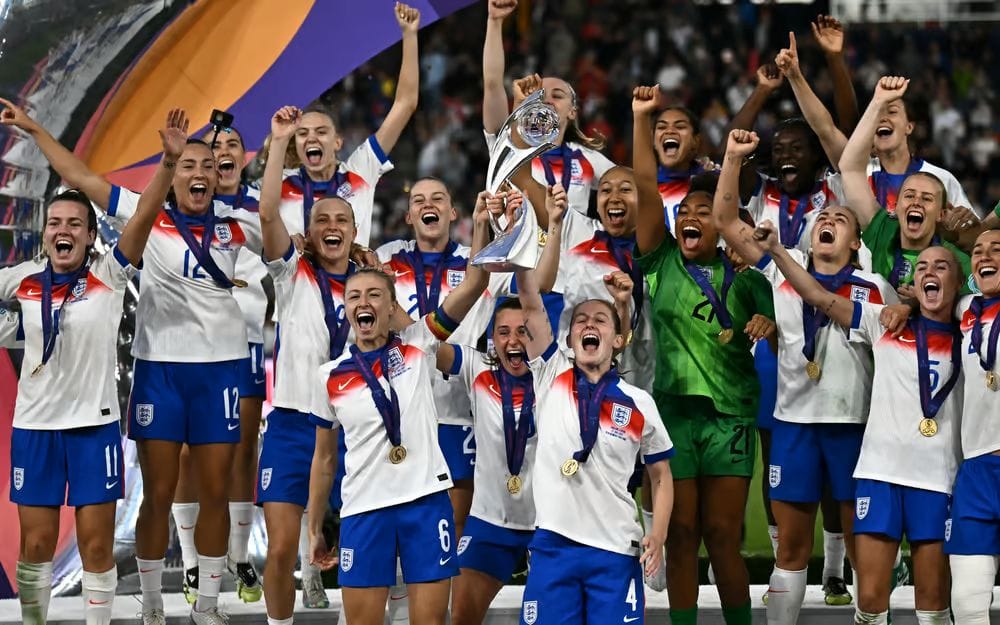The Lionesses Have Done It Again, And This Time, It Resonates Far Beyond Football 🏆🦁⚽

In a packed St Jakob-Park in Basel on Sunday, England fought back from a first-half deficit to draw 1–1 with Spain and then triumphed 3–1 in the penalty shootout, clinching back-to-back UEFA Women’s Euro titles and becoming the first senior England team ever to defend a major trophy on foreign soil.
Spain struck first when Mariona Caldentey powered home a header in the 25th minute, but just after the hour mark, Chloe Kelly’s raking cross found Alessia Russo, whose bullet header levelled the tie and set the tone for what was a third straight knockout match England rescued after conceding.
As extra time drained away and every touch felt monumental, Hannah Hampton, stepping in as England’s number one after Mary Earps’s retirement, stood tallest. She produced two decisive saves in the shootout before Kelly, ice-cold once again from the spot, drilled home the winner and sent the Lioness supporters wild.
But this wasn’t just about match moments. This was a masterclass in management. Sarina Wiegman has now coached in five consecutive major finals, an extraordinary run by any standard. Her tactical flexibility, smart squad rotation, and trust in rising talent shaped England’s entire campaign.
Among those young standouts, Michelle Agyemang shone brightest. At just 18, she was electric throughout the tournament, fearless on the ball, tireless off it, and full of intent every time she stepped onto the pitch. Her impact in the quarter-final was decisive, and her maturity beyond her years didn’t go unnoticed: she was named UEFA Women’s Euro 2025 Young Player of the Tournament. Agyemang didn’t just show up, she made her presence known in every match she played.
Grace Clinton, too, impressed with calm authority in midfield during the final, bringing composure and shape when it mattered most. Together, they represent more than promise. They’re proof of England’s future, and that future is already here.
This wasn’t just another trophy lift. It was a tribute to the defiance of the women who played in dusty factory kits a century ago. During World War I, the Dick, Kerr Ladies drew crowds of more than 50,000, only to see the FA ban women’s matches from official pitches in 1921 for being “unsuitable for females.” That prohibition lasted half a century, yet the game never truly went away.
When the Lionesses raised that silverware in Basel, they honoured every coach who worked for free, every girl who was told she couldn’t play, and every supporter who kept believing. Their win proves what happens when women’s football finally gets the investment, visibility, and respect it has long deserved.
Today they’ll stand on the Downing Street steps with the Prime Minister, and tomorrow there will be a trophy parade from Buckingham Palace down The Mall. But this victory isn’t just about confetti and fanfare. The message is clear: football’s future is for everyone. And the Lionesses are leading the way.

